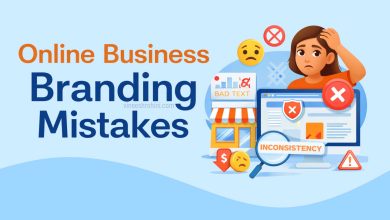ChatGPT, Content & Small Online Business
In the digital age, the landscape of business and entrepreneurship has undergone a profound transformation. Small online businesses, once constrained by geographical boundaries and limited resources, now have access to a global audience and a plethora of tools and technologies that can level the playing field with larger competitors. In this essay, we will explore the symbiotic relationship between ChatGPT, content creation, and small online businesses, illustrating how these elements can come together to create a thriving and sustainable online enterprise.
The Rise of Small Online Businesses
Small online businesses, often referred to as “microbusinesses,” have become a significant force in the global economy. These enterprises are typically characterized by their limited scale, often run by individuals or small teams, and they leverage the internet as their primary platform for operations. The appeal of small online businesses lies in their agility, low entry barriers, and the potential for substantial profitability.
Key Characteristics of Small Online Businesses
- Digital Presence: Small online businesses establish a strong digital presence through websites, social media, and e-commerce platforms.
- Niche Focus: Many microbusinesses operate within specific niches, allowing them to cater to unique customer needs and interests.
- Low Overheads: Online operations often require minimal physical infrastructure, reducing overhead costs.
- Direct Customer Engagement: Small businesses can engage directly with customers, fostering a sense of community and trust.
The Role of Content in Small Online Businesses
Content creation plays a pivotal role in the success of small online businesses. Content encompasses a wide range of forms, including blog posts, articles, videos, podcasts, infographics, and social media updates. High-quality content serves several essential functions:
1. Attracting and Engaging Audiences: Content is a powerful tool for drawing in and engaging potential customers. Well-written articles, informative videos, or entertaining podcasts can capture the attention of a target audience and keep them coming back for more.
2. Establishing Authority and Trust: Through insightful and valuable content, small businesses can establish themselves as experts or authorities in their respective niches. Trust is a crucial factor in online commerce, and content can help build it over time.
3. Driving Organic Traffic: Search engines reward fresh, relevant content with higher search rankings. This, in turn, drives organic (non-paid) traffic to a website, reducing the need for costly advertising.
4. Educating Customers: Content can educate customers about a product or service, helping them make informed purchasing decisions. In-depth guides, tutorials, and reviews are examples of educational content.
5. Fostering Community: Content can create a sense of community around a brand or business. Engaging with customers through comments and social media interactions builds a loyal following.
The Emergence of ChatGPT in Content Creation
One of the recent technological advancements that has greatly impacted content creation for small online businesses is the emergence of ChatGPT and similar AI language models. ChatGPT is a natural language processing model developed by OpenAI that can generate human-like text based on the input it receives. Its capabilities are diverse and include content generation, answering questions, language translation, and much more.
How ChatGPT Works
ChatGPT works by using a deep learning model known as a transformer. It analyzes large datasets of text to understand patterns and context. Users provide prompts or questions to ChatGPT, and it generates text based on the patterns it has learned. The model can be fine-tuned for specific tasks, making it adaptable to a wide range of applications.
The Impact of ChatGPT on Content Creation
ChatGPT has the potential to revolutionize content creation for small online businesses in several ways:
1. Content Generation: ChatGPT can assist in generating high-quality content efficiently. It can be used to draft blog posts, product descriptions, social media updates, and more, saving time and effort for business owners and content creators.
2. Content Expansion: Small businesses can use ChatGPT to expand their content offerings. For example, an e-commerce store selling fashion items can generate regular fashion tips and styling guides to keep their audience engaged.
3. Multilingual Content: ChatGPT can be used for automatic language translation, allowing small businesses to reach a global audience with content tailored to different regions and languages.
4. Personalized Content: By analyzing user data and preferences, ChatGPT can assist in creating personalized content recommendations and product suggestions, enhancing the customer experience.
5. Content Consistency: ChatGPT can help ensure consistency in branding and messaging across various content channels, maintaining a cohesive brand image.
Practical Applications of ChatGPT in Small Online Businesses
Let’s delve into some practical scenarios where ChatGPT can be integrated into the operations of small online businesses to boost efficiency and competitiveness:
1. Automated Blogging: Many small businesses maintain blogs to provide valuable information to their audience. ChatGPT can assist in generating blog post drafts, which can then be edited and customized by human writers. This accelerates the content creation process.
2. Product Descriptions: E-commerce businesses can use ChatGPT to generate product descriptions and specifications. This is particularly useful when dealing with a large inventory of products.
3. Customer Support: ChatGPT-powered chatbots can handle routine customer inquiries, providing quick responses and freeing up human customer support agents for more complex issues.
4. Email Marketing: Writing compelling email marketing campaigns can be time-consuming. ChatGPT can assist in generating email content, including subject lines and body text, to increase open and click-through rates.
5. Social Media Posts: Maintaining an active social media presence is crucial for online businesses. ChatGPT can suggest social media post ideas and even generate the content, complete with relevant hashtags and captions.
6. Content Curation: ChatGPT can help businesses curate relevant content from the web to share with their audience. This positions them as a valuable source of industry news and insights.
7. Market Research: Small businesses can use ChatGPT to analyze market trends and consumer sentiment by processing vast amounts of online data and extracting valuable insights.
8. Content Translation: For businesses looking to expand globally, ChatGPT can assist in translating website content, product listings, and marketing materials into multiple languages.
Challenges and Considerations
While ChatGPT offers numerous benefits for small online businesses, there are important considerations and challenges to keep in mind:
1. Quality Control: While ChatGPT can generate content quickly, it may not always produce content of the desired quality. Human editing and oversight remain crucial.
2. Ethical Use: There are ethical concerns around the use of AI-generated content, particularly when it comes to transparency with customers. It’s important to disclose when AI has been used in content creation.
3. Cost: While ChatGPT can save time, there is a cost associated with using AI models, especially at scale. Small businesses should weigh the benefits against the expenses.
4. Data Security: Businesses must be vigilant about data security when using AI models, especially when handling sensitive customer information.
Case Studies: Small Online Businesses Leveraging ChatGPT
1. E-Commerce Fashion Retailer:
Scenario: A small online fashion retailer wants to expand its content marketing efforts but lacks the resources to hire additional writers.
Solution: The retailer integrates ChatGPT into its content creation process. The AI model generates product descriptions, fashion tips, and style guides. Human writers then review and refine the generated content to ensure it aligns with the brand’s voice and standards.
2. Tech Startup:
Scenario: A tech startup with limited funding needs to provide customer support to its users but can’t afford a large customer support team.
Solution: The startup deploys a ChatGPT-powered chatbot on its website and within its app. The chatbot handles common user inquiries, such as account setup, password resets, and FAQs. Human support agents step in for complex issues that require human intervention.
3. Food Blog:
Scenario: A food blogger runs a popular website but struggles to keep up with the demands of regularly publishing new recipes and articles.
Solution: The blogger uses ChatGPT to draft recipe articles. The AI generates detailed recipes, which the blogger then tests, photographs, and customizes with personal anecdotes before publishing.
The Future of ChatGPT and Small Online Businesses
As AI language models like ChatGPT continue to advance, their integration into small online businesses is likely to become even more seamless and beneficial. Here are some future trends and possibilities:
1. Enhanced Personalization: ChatGPT can be fine-tuned to provide highly personalized recommendations and content, creating a tailored experience for each user.
2. Improved Natural Language Understanding: Future iterations of AI models will have better natural language understanding, allowing for more nuanced and context-aware interactions with customers.
3. Content Optimization: AI can help businesses optimize their content for search engines and user engagement, leading to higher visibility and conversion rates.
4. AI-Powered Decision Support: AI can assist business owners in making data-driven decisions by analyzing market trends, customer behavior, and financial data.
5. Voice Assistants: Integration with voice-based AI assistants could enable businesses to offer hands-free customer support and shopping experiences.
Conclusion
Small online businesses are thriving in the digital age, and their success is increasingly tied to their ability to create and disseminate high-quality content. The emergence of AI language models like ChatGPT has opened new horizons for content creation, offering small businesses a powerful tool to streamline their operations and engage their audiences more effectively. By harnessing the capabilities of ChatGPT and other AI technologies, small online businesses can stay competitive, reduce costs, and continue to grow in an ever-evolving digital landscape. The synergy between ChatGPT, content, and small online businesses exemplifies the dynamic nature of entrepreneurship in the 21st century, where innovation and adaptation are keys to success.



